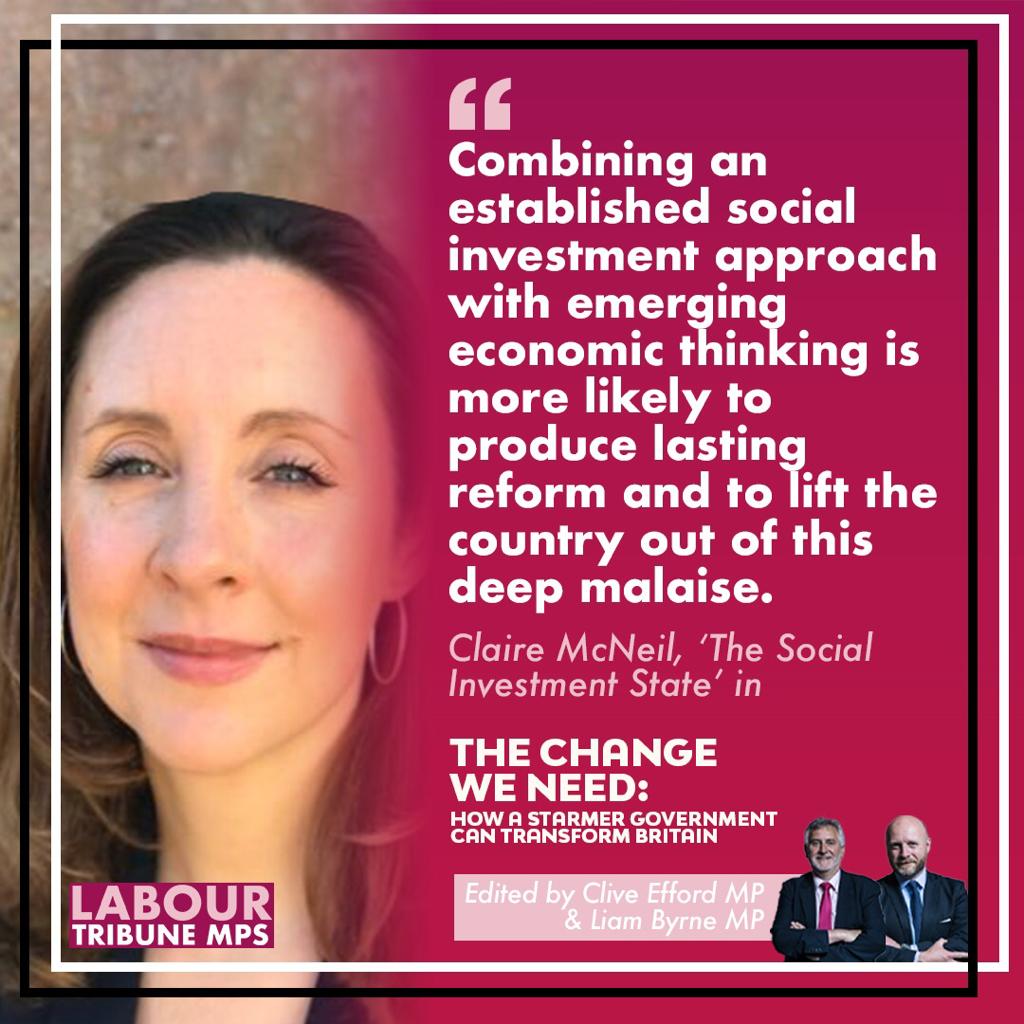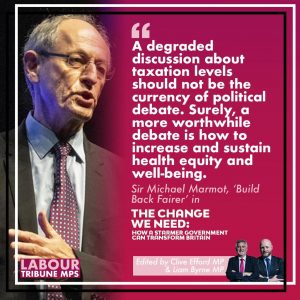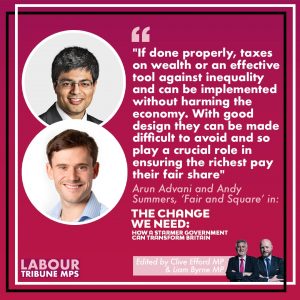Labour needs to unite its economic & social agendas to lead the country out of this deep malaise
This winter millions are headed towards barely imaginable levels of hardship, due to high inflation, falling real pay and the high cost of essential goods. Alongside this we are witnessing the morbid symptoms of a country overwhelmed by the supply shocks of Brexit, the legacy of the Covid-19 pandemic and multiple, longstanding failures of government and governance. In our stagnant economy, wealth plays a far greater role in shaping future prosperity than earnings.
The country is also mired in the failure of over a decade to sufficiently invest in our public services and welfare state and, just as importantly, to reform and reimagine them. This is needed to tackle both the new and persistent ‘social deficits’ we face as a country, from the slowdown in the lengthening and quality of life experienced across the UK, to growing inequalities in access to care for young and old, and who provides this.
There are few signs the Truss government grasps the scale of these problems, or will engage in the deep reform needed to tackle them, beyond a few electoral priorities. So these will be the defining challenges for Labour if it wins power at the next election. Confronting them requires the widest possible reform agenda. The foundations for this can be found in Keir Starmer’s nascent social investment agenda and Rachel Reeves’ vision of an ‘everyday economy’ and its willingness to take on ‘rigged capitalism’. Bold action on both fronts can help bring about the change the country so urgently needs.
Sir Keir Starmer has recently argued that strong public services should be at the centre of efforts to invest in the long-term growth and productivity of the country. If successful at the next election, Labour has set out plans for investment in catch-up education, health prevention and mental health, with more expected to follow on affordable childcare, social care and housing.
Similar ‘social investment’ agendas have recently underpinned winning election strategies for social democrats Olaf Scholz in Germany and Anthony Olbanese in Australia. They rightly emphasise the ‘productive’ role of public services which goes beyond simply ‘meeting needs’ to enabling long-term growth and quality of life, by providing good jobs and training and supporting the population’s health and care.
But in the 2020s a social investment agenda alone will not be enough to rescue the UK from its deep malaise. From a lack of affordable housing to growing educational inequalities, an ever-growing number of social ills are now produced and reinforced by inequalities in wealth and power. As a number of academics and writers have shown, these have intensified over decades as a result of the UK’s shift to a finance-led growth model and rentier economy. Put simply, we need a wider set of solutions for a country in which education and earnings now play such a hugely inferior role to assets and wealth in determining life chances. Another reason comes in the form of Labour’s tight fiscal rules which could in any event limit the reach of such an agenda.
Labour’s social investment approach should therefore be combined with another set of proposals being advanced in policy debates: Thomas Piketty’s ‘transcending capitalism’ blueprint which overlaps with ‘new economy’ or ‘democratic socialist’ demands to improve basic economic rights and democratise ownership and power. As Celia Kerstenetzky has argued, combining these agendas, and their contrasting assessments of problems and possibilities, has greater potential for improving equality of opportunity than either agenda can achieve alone. There are strong foundations for this in Keir Starmer’s argument for a new approach to social investment and in Rachel Reeves’ championing of an ‘everyday economy’ which critiques modern capitalism and argues for an economy built around the essential goods and services which make life worth living.
Take housing, for example. The last two decades have seen the rapid growth of the unregulated private rented sector and a drop in the proportion of people living in social housing and as owner occupiers. Housing costs for those living in the private rented sector have risen by almost half (48 per cent) in real terms over the same period, while costs for mortgagers have fallen in real terms due to (until recently) historically low interest rates. This in turn is contributing to widening inequality, with a growing ‘locked out’ group formed disproportionately of working families with children being pushed into poverty, while helping to grow the wealth of an inside rentier class of private landlords.
A social investment agenda would place the emphasis on boosting housing supply, helping to reduce prices in areas of high demand and create new stock of social housing. But as the Joseph Rowntree Foundation have shown, even on the most ambitious timescales it would take a decade to replace the social housing stock lost through the Right to Buy policy brought in by Margaret Thatcher in the 1980s alone. We can achieve more – more rapidly and at greater scale – by also focusing on the ownership and distribution of the existing 25 million homes in the UK. Taking just two options for this, this would mean addressing the macroeconomic conditions that have driven the distortions in the housing market of the past two decades, by curbing house price inflation and bringing wealth taxation, in particular for second homes, into line with taxation of earnings1.
It would also mean creating more alternatives to private renting by socialising existing housing stock to be let out at affordable rents, for example by supporting public and community organisations to buy homes in the secondary market.
A similar blend of social investment and new economic thinking is needed to improve life chances. The educational disadvantage gap has stood still in the past 20 years, with 16-year-olds who are eligible for free school meals still around 27 percentage points less likely to earn good GCSEs than less disadvantaged peers. Decades of evidence from the UK and internationally suggest this can be narrowed through investment and reform. But given the diminishing importance of earned income in relation to intergenerational wealth transfers in securing social and economic capital, we need bolder measures to achieve greater equality of opportunity.
A universal minimum inheritance for all 25 year olds, as several leading think tanks have called for, would help address the fact that those in their 20s & 30s today have incomes no higher than the previous generation at the same age and the worrying evidence of a structural decline in youth employment. Such a lump sum dividend from a citizens’ wealth fund would also equalise the ‘opportunity effect’ of holding assets and challenge concentrations of wealth at the top.
The same mix of traditional ‘welfare state’ and economic reforms is needed to equalise opportunity across the neglected and marketised childcare and social care sectors. We need to expand investment in childcare to improve quality and affordability, but also a new approach to ownership in the sector, to address inequalities of access and the debt-fuelled expansion of for-profit groups which risks the sustainability of the sector. For the same reason it is right for Labour to examine the role of private-equity owned companies in the care sector.
The welfare state emerged as a synthesis of social and economic policy, enshrined in the UK in the Keynes and Beveridge settlement of the 1940s and beyond. Yet in each of its recent incarnations, from New Labour in 90s and 2000s, to Miliband in 2015 and Corbyn in 2017/2019, Labour’s economic and social agendas have never convincingly been brought together. Now, even more than in these previous periods, this is precisely what is needed to tackle some of our most intractable challenges.
Currently, advocates for a social investment state and new economic thinking too often speak past each other. Their political differences are overplayed. But with bold action on both fronts, Labour is more likely to achieve lasting reform and to lift the country out of this deep malaise. While it may or may not be a pre-condition for electoral success, it can help form the basis of the durable and transformative governing agenda the country so badly needs.





